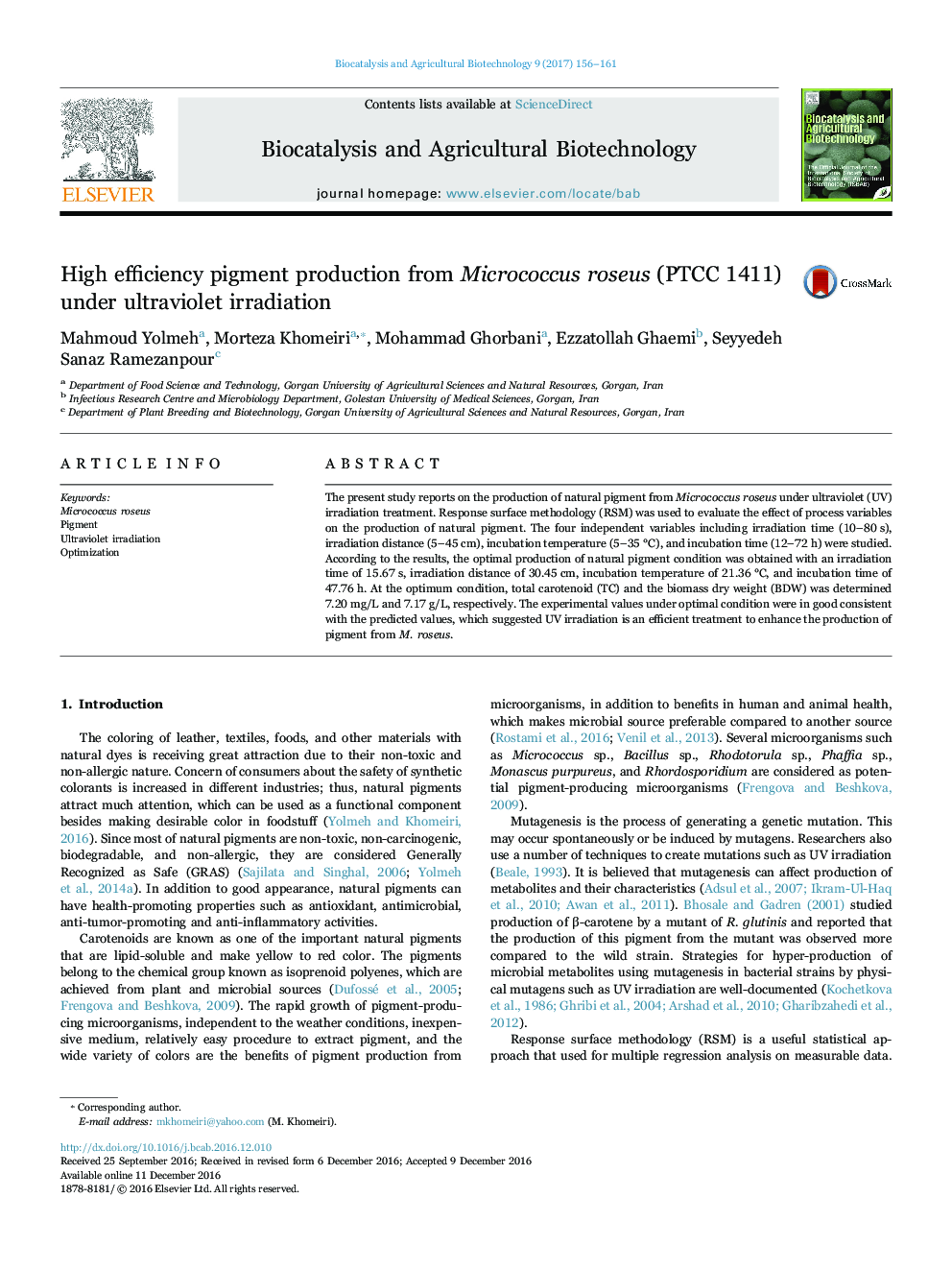| Article ID | Journal | Published Year | Pages | File Type |
|---|---|---|---|---|
| 5520579 | Biocatalysis and Agricultural Biotechnology | 2017 | 6 Pages |
â¢UV irradiation enhanced notably the production of pigment from M. roseus.â¢RSM successfully maximize pigment production from M. roseus under UV irradiation.â¢Irradiation time and incubation temperature had the highest and lowest effect, respectively.
The present study reports on the production of natural pigment from Micrococcus roseus under ultraviolet (UV) irradiation treatment. Response surface methodology (RSM) was used to evaluate the effect of process variables on the production of natural pigment. The four independent variables including irradiation time (10-80 s), irradiation distance (5-45 cm), incubation temperature (5-35 °C), and incubation time (12-72 h) were studied. According to the results, the optimal production of natural pigment condition was obtained with an irradiation time of 15.67 s, irradiation distance of 30.45 cm, incubation temperature of 21.36 °C, and incubation time of 47.76 h. At the optimum condition, total carotenoid (TC) and the biomass dry weight (BDW) was determined 7.20 mg/L and 7.17 g/L, respectively. The experimental values under optimal condition were in good consistent with the predicted values, which suggested UV irradiation is an efficient treatment to enhance the production of pigment from M. roseus.
